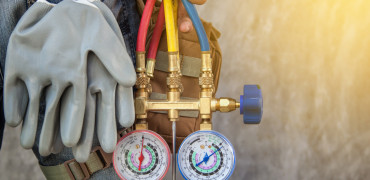This week is a really important week for Mitsubishi Electric and no, I’m not talking about all the Brexit shenanigans.
I’m also not talking about 16-year-old eco-warrior, Greta Thunberg arriving in New York to speak to the UN – although that is in part, connected.
So too, is last week’s IPCC draft report saying that rising sea levels across the globe could displace 280 million people within a few decades.
What I’m actually referring to though is that this week, we start a series of meetings with our major customers to explore ways of helping us all grow our businesses, whilst also helping to save the planet.
Some may think it strange that the manufacturer of energy consuming equipment should make such a bold statement but I’m happy to take that discussion full on because I do believe that we and our partners have a significant role to play in helping reduce energy consumption and working within our sector to help the UK end its contribution to climate change.
It’s important to work with companies that share a drive to reduce energy use in buildings
Reducing emissions
Buildings account for 40% of overall UK carbon emissions, and a major part of this energy consumption comes from the need to provide a comfortable and productive environment within these buildings.
We can’t go back to living in caves and whilst modern buildings are now designed with energy efficiency front of mind, our existing buildings are a collection of different historic methods of heating and cooling, involving gas boilers, open or shut windows and usually including poor thermal insulation.
As a nation, we are already committed to binding legal targets to reduce carbon emissions and one way of ensuring we are on the right road to these targets is to look at the energy efficiency of buildings in general.
Start with efficiency
That is why we advocate a Lean, Mean, Green approach which can help ensure that less equipment will be needed to offset the loads that remain within a building – Being ‘Lean’ is something we fervently believe is the right approach to generating truly sustainable buildings.
Lean – reduce the need for energy consumption in the first place
Mean – use that energy as efficiently as possible
Green – source that energy from low or zero-carbon technologies
Once the energy efficiency of the buildings envelope has been improved, the next step is to be ‘Mean’ by correctly deploying and monitoring the most effective and efficient equipment for that building.
This may mean using what is already there more efficiently by adding more effective controls. Old technology could be changed for more modern, energy efficient equipment that can move heat around a building to where it can be best used. The use of fossil fuel on site, with its relatively high direct emissions can be removed in favour of lower carbon alternatives.
Lastly, we urge everyone to be ‘Green’ by incorporating low and zero-carbon technologies where possible to create some or all of the energy required at a building scale.
Our partners are key
As a manufacturer, we believe we have the most efficient and cost effective products and solutions available – but then you would expect us to say that!
You might not expect me to effectively tell you to use less of our equipment though! But in essence that is what we advocate. Use the right equipment for your building … and make sure it is working as effectively as possible, all of the time.
And that is where our partners come in because what is equally important, is working with companies that share our drive to reduce energy use in buildings, and who adhere to the highest standards of design, installation and maintenance for whatever equipment is used within those buildings.
By addressing the way we heat, cool and ventilate our buildings – even the smallest improvement can reduce total energy consumption and also help to lower the bills of the individuals involved.
That is what we believe in and what our partners believe in, which is why this week is so important for us.
Creating sustainable buildings will not only help safeguard our future, preserve energy resources, and reduce on-going running costs, it really can help to save the planet.
Martin Fahey is Head of Sustainability at Mitsubishi Electric Living Environment Systems UK


